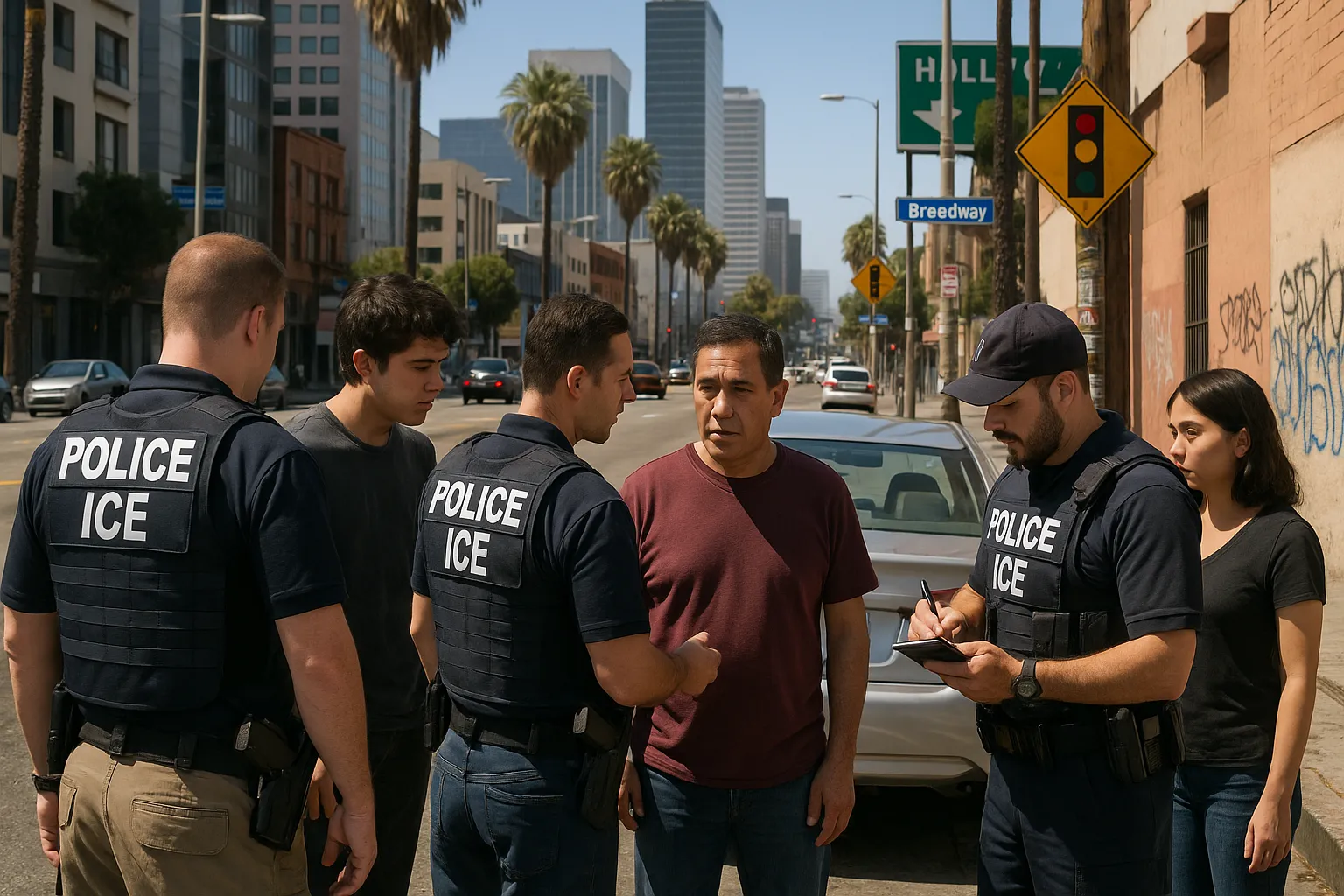Supreme Court Lifts Limits on Los Angeles ‘Roving’ Immigration Stops

Lead The U.S. Supreme Court on Friday overturned a federal judge’s order that had barred ICE agents from detaining individuals in Los Angeles solely based on race, language, location or occupation, allowing “roving patrols” to resume immediately.
Nut Graf By revoking the restraining order, the conservative majority cleared the way for expanded immigration sweeps in Southern California, sparking fierce dissent from the Court’s liberal justices and alarm from civil-rights advocates who warned of racial profiling and constitutional violations.
Impact on Enforcement Shortly after the decision, agents intensified operations in Los Angeles and surrounding counties, conducting stops at car washes, bus stops and day-labor sites. The ruling empowers officers to factor in apparent ethnicity or spoken language alongside other considerations to establish “reasonable suspicion,” though ethnicity alone cannot suffice.
Liberal Dissent
- Justice Sonia Sotomayor, joined by Justices Kagan and Jackson, denounced the ruling as a green light for racial profiling and Fourth Amendment abuses.
- Sotomayor highlighted instances of Americans thrown to the ground and handcuffed based on appearance and accent, warning that countless more will face similar treatment.
Government Position
- The Department of Homeland Security and Justice Department argued the injunction unduly restricted agents’ ability to enforce immigration laws in a region estimated to have 10% undocumented residents.
- In a concurrence, Justice Kavanaugh clarified that visible ethnicity may serve as one relevant factor when combined with other specific, articulable facts to justify a stop.
Reactions and Next Steps
- California Governor Gavin Newsom and Los Angeles Mayor Karen Bass condemned the ruling as “un-American” and pledged legal challenges.
- Immigrant-rights groups vowed to press on in lower courts, seeking a preliminary injunction at a September hearing to restore the protections previously in place.
The case-Noem v. Vasquez Perdomo-will return to the district court for further proceedings, though the Supreme Court’s emergency stay stands until a full appeal can be heard.
Categories
Autos and vehicles Beauty and fashion Business and finance Climate Entertainment Food and drink Games Health Hobbies and leisure Jobs and education Law and government Other Politics Science Shopping Sports Technology Travel and transportationRecent Posts
Tags
Archives
08/19/2025 (3) 08/20/2025 (40) 08/21/2025 (27) 08/22/2025 (22) 08/23/2025 (4) 08/24/2025 (21) 08/25/2025 (30) 08/26/2025 (24) 08/27/2025 (29) 08/28/2025 (16) 08/29/2025 (9) 08/30/2025 (13) 08/31/2025 (17) 09/01/2025 (167) 09/02/2025 (124) 09/03/2025 (149) 09/04/2025 (112) 09/05/2025 (72) 09/06/2025 (169) 09/07/2025 (162) 09/08/2025 (150) 09/09/2025 (176) 09/10/2025 (194) 09/11/2025 (194) 09/12/2025 (186) 09/13/2025 (207) 09/14/2025 (159) 09/15/2025 (175) 09/16/2025 (198) 09/17/2025 (196) 09/18/2025 (196) 09/19/2025 (207) 09/20/2025 (129) 09/21/2025 (4)